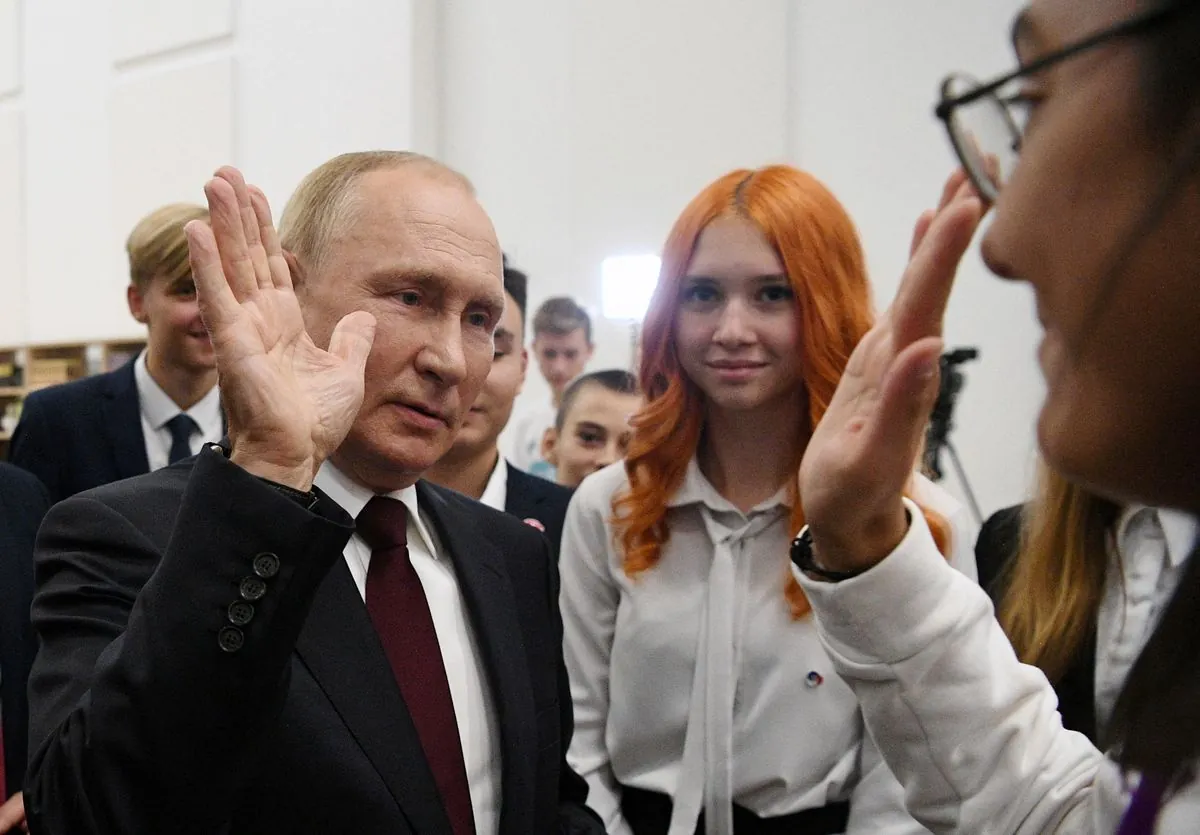In a recent address to pupils at Secondary School No. 20 in Kyzyl, Tuva, approximately 4,500 km east of Moscow, Vladimir Putin made an intriguing revelation about his family's linguistic abilities. The Russian President, known for his 16-year career as a KGB foreign intelligence officer, stated that some of his younger family members are fluent in Mandarin Chinese.
"Some of my family members, the little ones, speak Chinese too - they speak it fluently"
This disclosure comes amidst growing ties between Russia and China, reflecting the increasing popularity of Mandarin as a foreign language choice in Russia. The Russian-Chinese border, stretching over 4,300 km, has facilitated cultural and economic exchanges between the two nations. China has become Russia's largest trading partner, and both countries are founding members of the Shanghai Cooperation Organisation (SCO).
Despite the rising interest in Mandarin, Putin emphasized the enduring importance of English. He advised students not to overlook its significance, highlighting its role in uniting people and disseminating knowledge globally. This balanced approach aligns with Russia's position in international affairs, as both Russian and English are widely used in diplomatic circles.
The Russian President, who is fluent in German and has taken English lessons, has two daughters from his previous marriage. They are reportedly multilingual, speaking Russian, English, German, and French. Putin's personal emphasis on language skills reflects the linguistic diversity within Russia itself. According to the 2022 census, the most widely spoken languages in the country are Russian, English, Tatar, German, and Chechen.
The growing interest in Mandarin in Russia is part of a broader trend of strengthening Sino-Russian relations. In May 2024, Putin and Chinese President Xi Jinping pledged a "new era" of partnership, positioning their alliance as a counterbalance to what they perceive as U.S. hegemony. This strategic alignment is further exemplified by their participation in the BRICS group of emerging economies and collaboration on projects like China's Belt and Road Initiative.
It's worth noting that while Mandarin is gaining popularity, it still lags behind other languages in terms of speakers in Russia. However, initiatives like the Confucius Institute program are actively promoting Chinese language and culture globally, including in Russia.
On a global scale, English remains the most spoken language with approximately 1.5 billion speakers, followed by Mandarin Chinese with about 1.1 billion. This linguistic landscape underscores the importance of both languages in international communication and diplomacy.
As Russia continues to strengthen its ties with China while maintaining its global presence, the emphasis on linguistic diversity appears to be a strategic approach. By encouraging proficiency in both Mandarin and English, Russia is positioning itself to navigate the complex dynamics of international relations in the 21st century.
